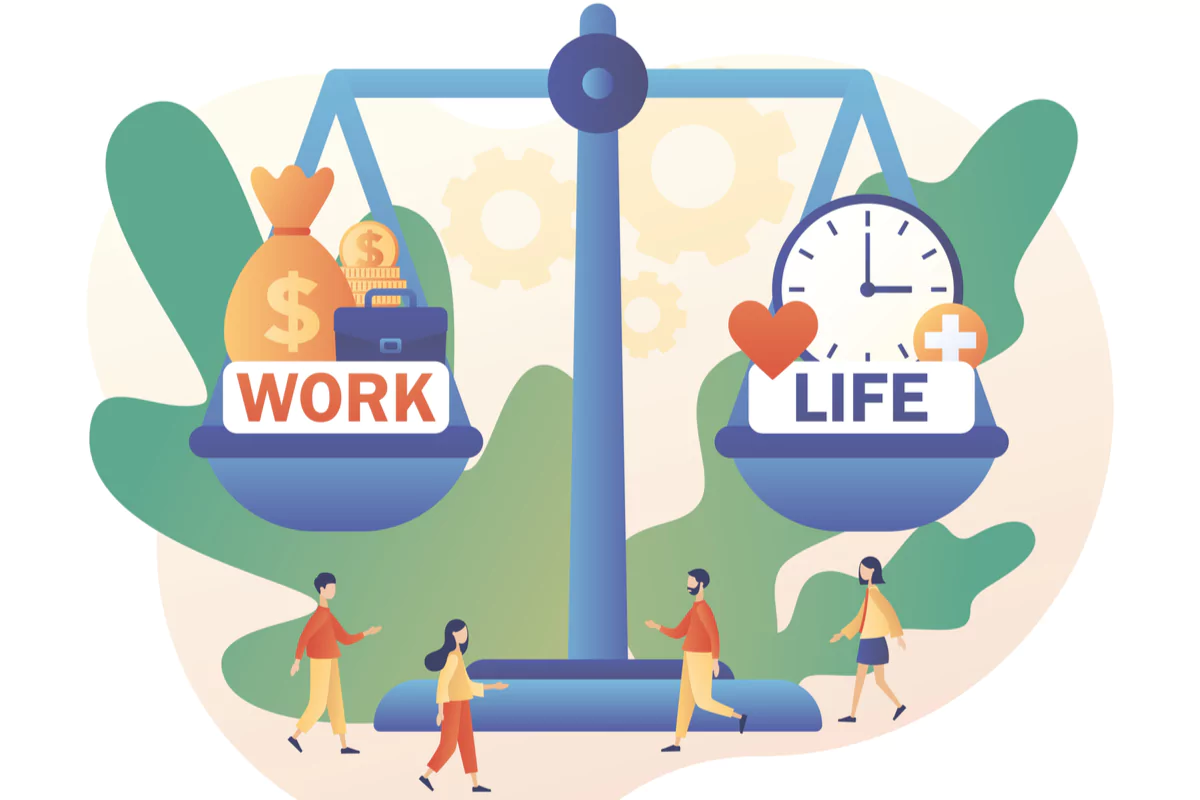Google Engineer Earns 1.2 Cr Salary from Just 1 Hour of Work Daily: Work Smart, Not Hard
Defying conventional work notions of longer hours, Google Engineer who works just 1 Hour in a day reportedly has an annual income of INR 1.2 Crore.

Google Engineer Earns 1.2 Cr Salary from Just 1 Hour of Work Daily: Work Smart, Not Hard
A young software engineer at Google has exposed an astonishing workstyle that caused people to raise eyebrows and stirred talks about work-life balance as well as productivity, in a startling break away from the industry’s generally accepted standards. He, in his twenties, goes by the pseudonym Devon and has come to be the center of attention by stating that he devotes just a single hour every day to his work while earning an astounding annual salary of $150,000, nearly equivalent to INR 1.2 crore. This one-of-a-kind story provides a new perspective on employment success, contradicting the widely held belief that lengthy working hours equals enormous income levels.
People who want to find a balance between their career aspirations as well as private contentment might relate to Devon’s tale, which was told in an interview with Fortune. Devon starts his day of work unusually late—by 10 am, he had not even opened his laptop—contrary to the cliché of computer professionals who spend their days hooked to their computers. The work he produces is not diminished by this unusual method of working; on the contrary, it provides an understanding of an alternative paradigm for workplace efficiency.
If I wanted to work long hours, I’d be at a startup. Most people choose Google because of the work-life balance and benefits. You could work at Apple, but Apple has such fan appeal to software engineers. They work long hours… but at Google, most people know what they’re doing is a job.
Although it is difficult to imagine such a minimal method of operation in the dynamic and quick-paced tech sector, Devon’s decision is based on the idea of “working smart.” He makes it clear that his strategy focuses on streamlining the way labor is carried out rather than encouraging laziness or slacking off. In Devon’s typical day of work, he begins the week by plunging headfirst into coding for a sizable amount of a task following which he works with his manager to guarantee that everything runs smoothly the entire time. According to Devon, this plan establishes the tone for the remainder of the week.
It is interesting to note that Devon joined Google as an intern, where he successfully completed his assignments ahead of time so that he could take a weeklong vacation in Hawaii. This experience demonstrated the possibility of preserving a healthy balance between work and life despite being in a demanding profession. Devon made the decision to work at Google full-time with the knowledge that a more balanced work environment was possible.

Devon continues to be practical as he addresses worries about missed texts as well as potential disruptions. He admits that missing a message from his manager is not a disastrous occurrence; rather, he handles such issues later in the day during his designated work hours. This way of thinking mirrors the priorities that many Gen Z as well as millennial workers have adopted, placing equal value on leisure time and life experiences as they do on professional achievements.
Devon’s narrative also highlights the shifting work landscape in technology. Engineers such as Devon, who acknowledge that they are “paid to do nothing,” are the result of the “penning” tendency, in which businesses recruit more people than they need to in order to prepare for projected development. In an effort to hire people and stay competitive, companies experienced a business boom that was partly spurred by the outbreak of the pandemic.
Devon is one of the Google employees that prioritizes balancing work and personal life as well as values the benefits that the company offers. Google is known for its innovative work culture. Google provides an environment where employees may carry out their professional tasks without jeopardizing their own personal well-being, in contrast to the demanding work culture attributed to other IT giants.
Devon’s narrative encourages thought on the variety of methods one can attain success as well as financial stability in an era where the culture of hustle has frequently been at the spotlight. His journey casts suspicion on the idea that working continuously is the only way to success as well as emphasizes the value of effectiveness, creativity, and a well-rounded attitude to work. Devon’s story may very likely spur a change in mindset and behavior as the IT sector develops, promoting a better working environment for coming generations.
Google’s Standing as a Top Paying Company
Google has established a solid reputation as an outstanding place to work, standing out because of its uplifting workplace culture. A staggering 97 percent of its employees believe it to be an amazing place to work, which contrasts sharply with the 57 percent satisfaction rating for companies in the United States. The business is well known for offering a wide range of alluring amenities, such as a distinctive campus atmosphere, free meals, and high pay.
Google made news earlier this year, though, for a different reason. The corporation unexpectedly announced in January that it would be laying off 12,000 employees, shocking many people and leaving them jobless. The decision drew criticism because it ran counter to the company’s well-known reputation for lavish benefits as well as substantial compensation. Former employees expressed their worries about the incident to CEO Sundar Pichai in an open letter, pleading with him to give ethical behavior and better management of these situations top priority.
Despite this incident, Alphabet, the parent company of Google, was still able to rank among the highest paid firms in 2022. The Wall Street Journal said that Alphabet earned a median income of USD 280,000, placing it third on the list. This demonstrates the company’s continued appeal as an attractive place for the finest individuals as well as its dedication to providing its employees with market-competitive wages.
Devon’s Unconventional Approach to Productivity
Devon presents a narrative that violates accepted conventions as well as disrupts preconceived notions in the area of corporate work ethics along with time commitment. Devon’s workday contrasts sharply with the typical 9 to 5 grind, in spite of Devon working for one of the biggest tech companies in the world, Google. Astonishment has definitely been sparked by his stunning admission that, at 10 am—when most professionals are completely engrossed in their work—he had not yet even opened his laptop. This is particularly surprising considering the tech industry’s rapid-fire momentum.
Efficiency Anchored in Passion
Devon bases his strategy on a strong commitment to preserving his mental agility for tasks that actually excite him. He reveals that he spends his mornings working on coding projects, which allows him to finish a great deal of his assignments. Devon claims that he maintains a smooth trajectory for growth all throughout the week by dealing with the most important issues first thing in the morning.
It is noteworthy that he saves the remainder of his work hours for his very own startup business, highlighting his desire to have a significant effect on his own terms. This project is enhanced by Google’s appealing benefits, which surely add to its allure. These benefits include expansive campuses, gyms, as well as complimentary meals.
The Ripple Effect on Work-Life Equilibrium
Devon’s story shines a bright light on the balance between work and personal life, an objective that frequently fails in a field known for its incessant demands. His extraordinary capacity to generate a sizable income from just one hour of daily dedication implores us to reconsider the inherent relationship between time invested as well as productivity attained. His experience disproves conventional knowledge by showing that unusual work methods may coexist peacefully with prosperity, as well as overturning the widely held notion that long hours of work are a necessary requirement for a successful career.

A Paradigm Shift in the Tech Domain
The narrative by Devon, more than being just an individual journey, refers to a bigger tidal change occurring in the technological environment. Traditional assumptions are being demolished by a new generation of professionals who prioritise quality over quantity. This new generation emphasizes the importance of efficiency, personal fulfilment, as well as ground-breaking innovation. Devon’s story vividly demonstrates how, even inside the most established corporate corridors, people have been creating paths that are perfectly aligned with the principles and goals they hold dear.
Redrawing the Blueprint of Success
The professional account shared by Devon is nothing less than a brazen challenge to commonly held opinions about the connection between long workdays as well as financial prosperity. He demonstrates a decision that prioritizes passion, effectiveness, and personal fulfilment over traditional work paradigms by redefining the bounds of efficiency and creative thinking inside the tech sector.
His journey serves as an example of an emerging generation of professionals that are proactively redefining the conventional business world rules and policies. Examples such as Devon’s serve as a powerful reminder that success may be attained through creative ways as well as unusual strategies as the workplace landscape changes. They also signal a future in which impact and equilibrium will effortlessly converge in the professional realm.





